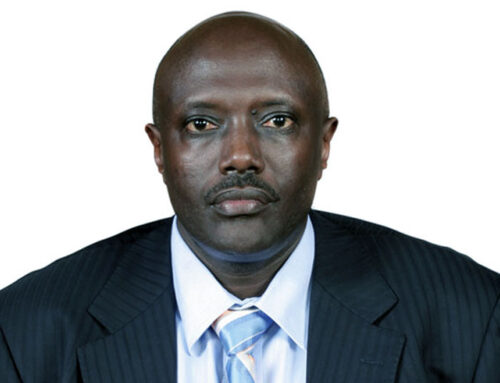
Uganda’s police force has been modernised and brought up to the highest international standards. Led by Lieutenant-General Kale Kayihura, Inspector-General of the Police since 2005, the police force is guided by its mission to implement ‘rule of law’ in Uganda. To respond to the country’s evolving needs, the police force has been organised into special divisions, including the tourism police; a counter-terrorism force; oil and gas police; airport and traffic police; and a Public Order Management unit.
Under the Inspector-General of Police, the police force has been increased from 14,000 members in 2005 to 43,000 today, and Kale Kayihura aims to add 2,500 new members each year until Uganda has the standard ratio of one police personnel for every 500 citizens. Other forward-thinking initiatives include building up the canine unit, particularly to counter narcotic drugs and terrorism; improving the police air wing unit for emergency and rescue services; establishing a Police University to train recruits; and acquiring and increasing the use of non-lethal weapons for our public order forces to eliminate unnecessary casualties.
“Our number one priority is proper training. We are training our police personnel to diffuse situations through constructive engagement and to be proactive rather than reactive,” the Inspector-General says. He has launched the Professional Standards Unit to instal “a good mixture of composure, positive human relations, and a stern attitude towards misbehaviour,” he adds.
Crime rates have declined significantly
These programmes are working. Since the Inspector-General took office, crime has decreased every year in Uganda and this year the country was chosen to host a meeting of Interpol representatives from 12 countries, a sign of confidence in Uganda’s ability to provide security. The Inspector-General says, “Ugandan police officers pride themselves on doing anything possible before resorting to any means of violent or physical confrontation. The media tries to show examples of police violence, but does not generally report that many policemen have died from trying to stop political riots and uprisings.”
Promoting community policing, through which local police personnel get to know the people they serve, is one of Kale Kayihura’s priorities. He explains, “This helps police diffuse possible trouble and empowers the local civilian to stand up for what is right and stop what is wrong. The police are also very involved with youth and social programmes to teach communities that the police are there to help.” The Inspector-General concludes, “Uganda has a very low crime rate, and visitors should know that the police in Uganda are here to protect them.”
UPF HEADQUARTERS
IPS Building – Parliament Avenue Kampala
Tel: +256 414 23 3814
[email protected]
www.upf.go.ug





